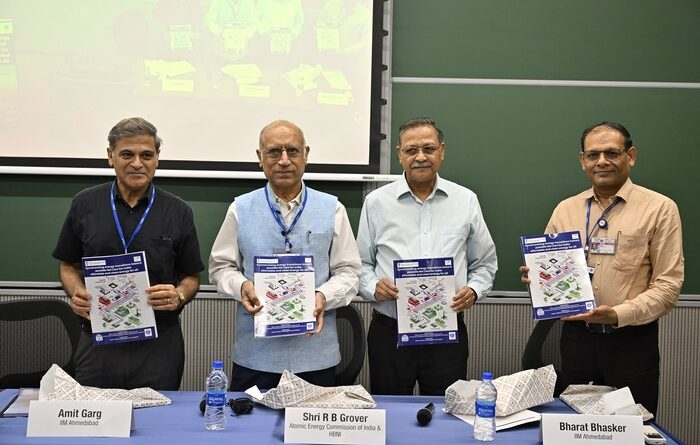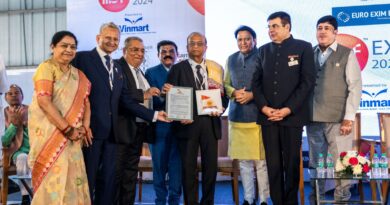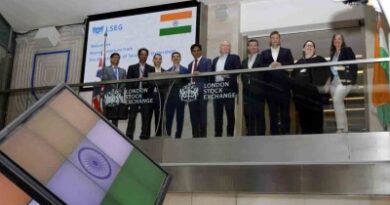IIM Ahmedabad Unveils Report on Synchronizing Energy Transitions Towards Net Zero for India
Achieving Net Zero by 2070 Requires Development-Led Transition, Says Atomic Energy Commission Member Dr. R. B. Grover
- IIM Ahmedabad Report Highlights Pathways and Challenges to India’s Net Zero 2070 Goal
BILKULONLINE
Ahmedabad, Aug 17: The Indian Institute of Management Ahmedabad (IIMA) organized a dissemination event today for the report titled “Synchronizing Energy Transitions towards Possible Net Zero for India: Affordable and Clean Energy for All.”
The event saw the presence of notable figures including Professor Bharat Bhasker, Director, IIMA; Dr. R. B. Grover, Member of the Atomic Energy Commission of India and Emeritus Professor at the Homi Bhabha National Institute (HBNI), Mumbai; and Professor Amit Garg, NIIF Chair Professor in ESG, IIMA. Remya Haridasan, Senior Scientist D at the Office of the Principal Scientific Adviser (PSA) to the Government of India, joined online.
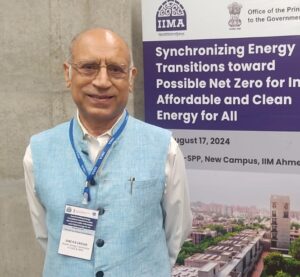
Prepared by IIMA with Professor Amit Garg leading the project team, and supported by the Office of the PSA and the Nuclear Power Corporation of India Ltd (NPCIL), the report addresses crucial questions about India’s energy future. It explores pathways to achieving a high Human Development Index (HDI) while meeting energy needs, projects the energy mix until 2070 (India’s declared net-zero target year), and estimates the costs, carbon emissions, and investments required for the transition.
Dr. R. B. Grover emphasized the need for policy interventions to achieve Net Zero by 2070. “To be a developed country by 2047, our focus must be on ‘development-led transition’ rather than ‘transition-led development’. Meeting the twin objectives of decarbonisation and economic growth is challenging and complex for India,” he stated. He highlighted the importance of balancing energy generation and consumption and diversifying the energy mix to ensure energy supply security.
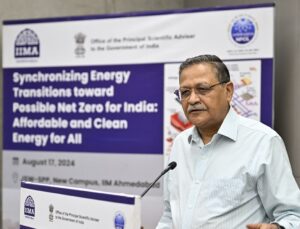
Professor Bharat Bhasker underscored the significance of India’s net-zero goal. “India’s goal of achieving net zero emissions by 2070 holds significant importance as it will determine the country’s infrastructure and employment generation in the next five decades. It also positions India as a leader in the global effort to combat climate change,” he said. He noted that the report offers deep insights into maintaining affordable energy for common users while pursuing a low-carbon pathway.
Professor Amit Garg elaborated on the report’s exploration of national pathways under different scenarios for economic growth and technology alternatives. “Renewable energy and nuclear energy have almost equal prominence in clean energy solutions for India achieving Net Zero emissions,” he said.
Initially launched on April 3, 2024, at Vigyan Bhawan Annexe, New Delhi, the report was cited in the Economic Survey of India 2023-24. The report projects future energy baskets for 2030, 2050, and 2070, addressing growth and climate commitment scenarios. Key conclusions highlighted include the need for multiple energy sources, the ongoing role of coal with emerging technologies to reduce emissions, the prominence of renewable and nuclear energy by 2070, and the critical mineral dependency for renewable energy and battery storage.
This report aims to guide policymakers and the public in understanding and navigating the complex energy transitions required to achieve a sustainable, net-zero future for India.
For more details, please visit the IIM Ahmedabad website or contact the Office of the Principal Scientific Adviser to the Government of India.
